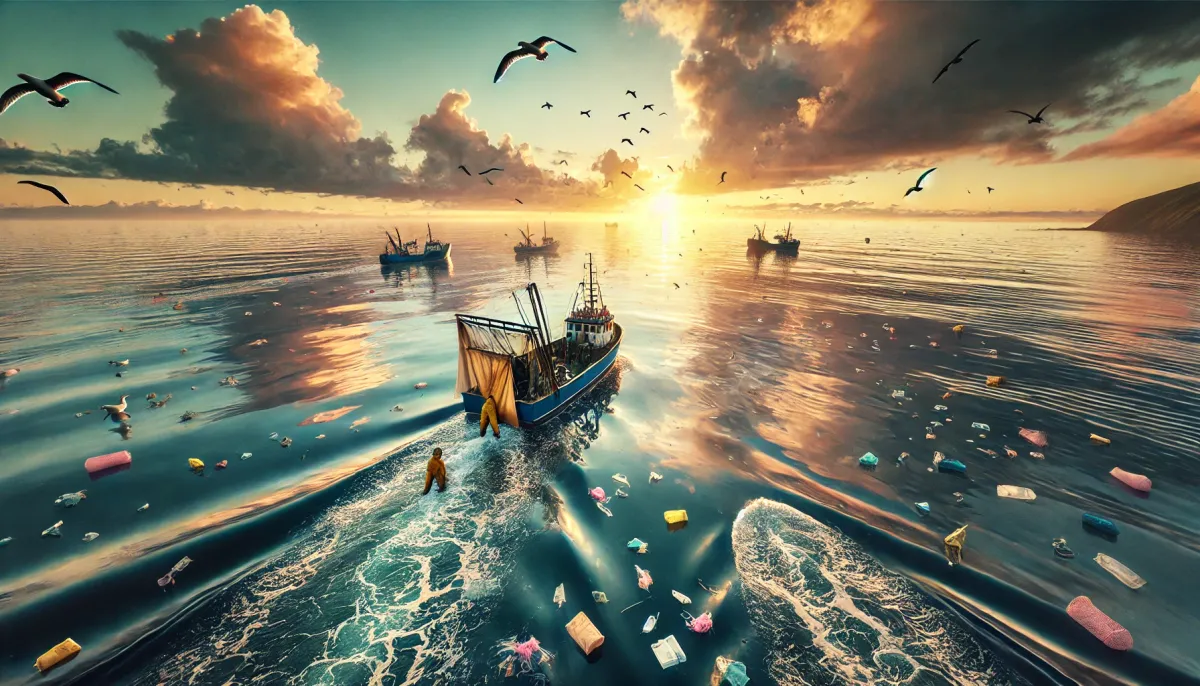Ocean Plastic Cleanups: A Double-Edged Sword?

Plastic pollution in the world’s oceans has reached a critical tipping point, with disastrous effects on marine ecosystems, wildlife, and even human health. In response, various initiatives have been launched to clean up the oceans, from high-tech drones and robots to community-driven efforts by fishermen.
Critics argue that while removing plastic from the ocean is important, these initiatives might be masking the larger, more systemic issue of plastic production and consumption, and in some cases, could harm the very ecosystems they aim to protect.
Turning Ocean Plastic into Profit: A Success Story in China
In Zhejiang province, China, a unique environmental initiative is making waves—quite literally. For the past four years, over 11,000 fishermen have been participating in a plastic retrieval project spearheaded by a local organization called Blue Circle. These fishermen are hauling more than fish out of the sea; they’re also pulling up discarded fishing nets and other plastic debris. In exchange, they are compensated roughly $1 USD per kilogram of plastic they collect, an amount that supplements their regular income.
Over time, the fishermen have managed to remove 2,800 metric tonnes of plastic from the waters off China’s coast. Blue Circle not only pays the fishermen for their efforts but also shares profits from the sale of the recycled plastic. The waste is processed into pellets that manufacturers use to create new products, providing a sustainable cycle that reduces waste and generates economic benefits.
Blue Circle’s success has earned it recognition from the UN Environment Programme (UNEP), and it stands as a shining example of what can be achieved when environmental conservation meets local economic interests.
While Blue Circle’s work is laudable, it’s part of a larger global movement aimed at cleaning up ocean plastics—a movement that includes well-publicized efforts like those of The Ocean Cleanup. Yet, even as such initiatives gain traction, many scientists and environmentalists are beginning to question their long-term sustainability and potential unintended consequences.
The Problem with Cleanups: Are We Doing More Harm Than Good?
Plastic pollution is, without question, one of the gravest environmental challenges of our time. Each year, an estimated 1.7 million tonnes of plastic enter the ocean, creating floating debris fields that harm marine animals, coral reefs, and the overall health of marine ecosystems. Plastics break down into micro- and nanoplastics, which are consumed by fish and other marine creatures, eventually making their way into the human food chain.
The urgency to act on this crisis has led to a surge in cleanup projects across the globe, but many experts are now sounding the alarm that these efforts might be causing more harm than anticipated.
Marine ecologist Rebecca Helm, from Georgetown University, points out a critical flaw in these projects: many of them fail to consider the ecosystems that are home to both plastic waste and living organisms. “Plastic pollutes habitats, ecosystems, places where animals already live,” Helm explains. “So taking plastic out using something like big nets is going to take life out with it.” This fundamental issue raises questions about whether plastic removal is a solution, or whether it could further destabilize already fragile ecosystems.
Animals like fish, crustaceans, and even smaller creatures living in the water can be inadvertently trapped alongside the plastic, leading to unintended bycatch that can harm biodiversity.